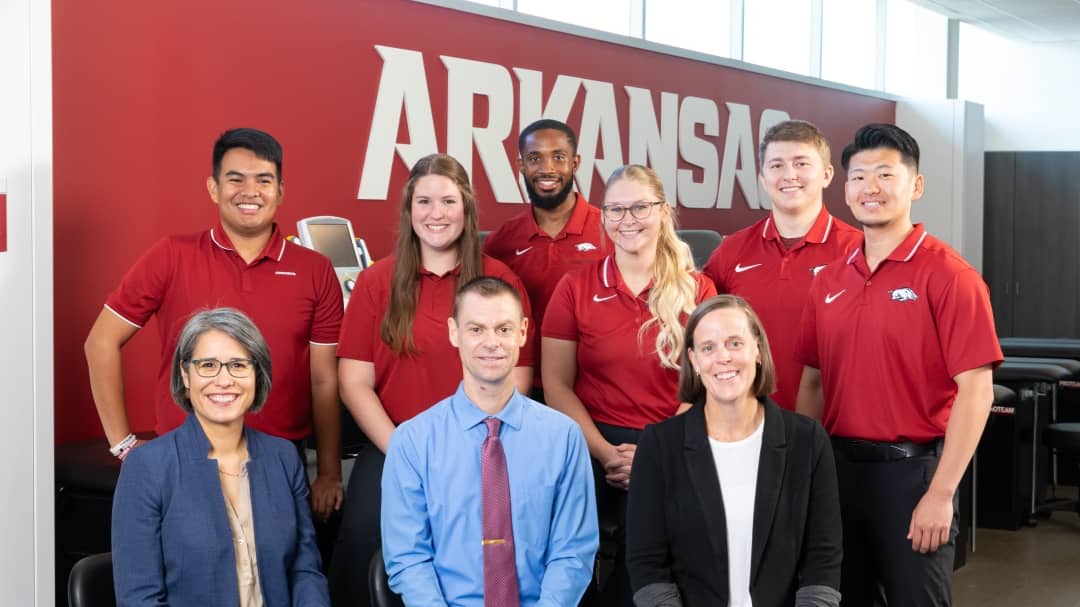Educational Opportunities

The University of Arkansas Master of Athletic Training Program offers a variety of educational opportunities that supplement classroom and clinical opportunities.
Research Opportunities
Through this experience, students gain a deeper understanding of the research process and become critical consumers of new evidence as it applies to clinical practice.
Each student in the M.A.T. program learns about research done in health and sports medicine. Students can participate in research opportunities within the following research laboratories by earning hours completing a variety of research-based activities including data collection, clinical testing, data entry, database research, and abstract and presentation preparation.
- Impact of exercise in heat, exertional heat stress and dehydration; prevention and treatment of exertional heat illness (heat cramps to heat stroke); preventing sudden death in sport — Brendon McDermott, Ph.D.
- Factors that increase concussion risk in youth and college-age athletes — Office for Sport Concussion Research of Robert J. Elbin, Ph.D.
- Influence of occupational work on spinal injuries, assess people's posture, sitting or standing, muscle activity, and movement — Kaitlin Gallagher, Ph.D.
- The MOVE lab focuses on using motion capture to assess gait and balance to help us better understand how people move — Abigail Schmitt, Ph.D.
- Investigating age-related ailments with the goal of increasing quality of life of older adults. — Office for Studies on Aging of Michelle Gray, Ph.D.
- Promotion and measurement of physical activity in children — Exercise Is Medicine of Erin Hickey, Ph.D.
Simulation Opportunities
Simulation allows students to gain critical patient care experiences in a safe environment with time to receive individualized feedback through debriefs.
Students in the M.A.T. Program complete simulation activities through the Centers for Simulation Education at the Northwest Arkansas campus of the University of Arkansas for Medical Sciences, specifically the Pat and Willard Walker Student Education Center in Fayetteville. These include engagements with standardized patients. The program is also developed to include simulation experiences in many of the courses within the curriculum.
Walker Student Clinical Education Center — A simulated outpatient setting for teaching and assessment of clinical skills, including communication, physical examination, and procedural skills using standardized patients and procedural skills trainers.
Professional Development
Students participate in a variety of professional development activities including an active student organization. The Arkansas Athletic Training Student Association (Instagram @uark_aatsa) completes service activities, coordinates social events and brings in guest speakers from across the United States.
Students can participate in professional conferences by attending the annual meeting of the Southwest Athletic Trainers’ Association (SWATA). These are vital opportunities to learn, network, and meet leaders in the athletic training profession.
